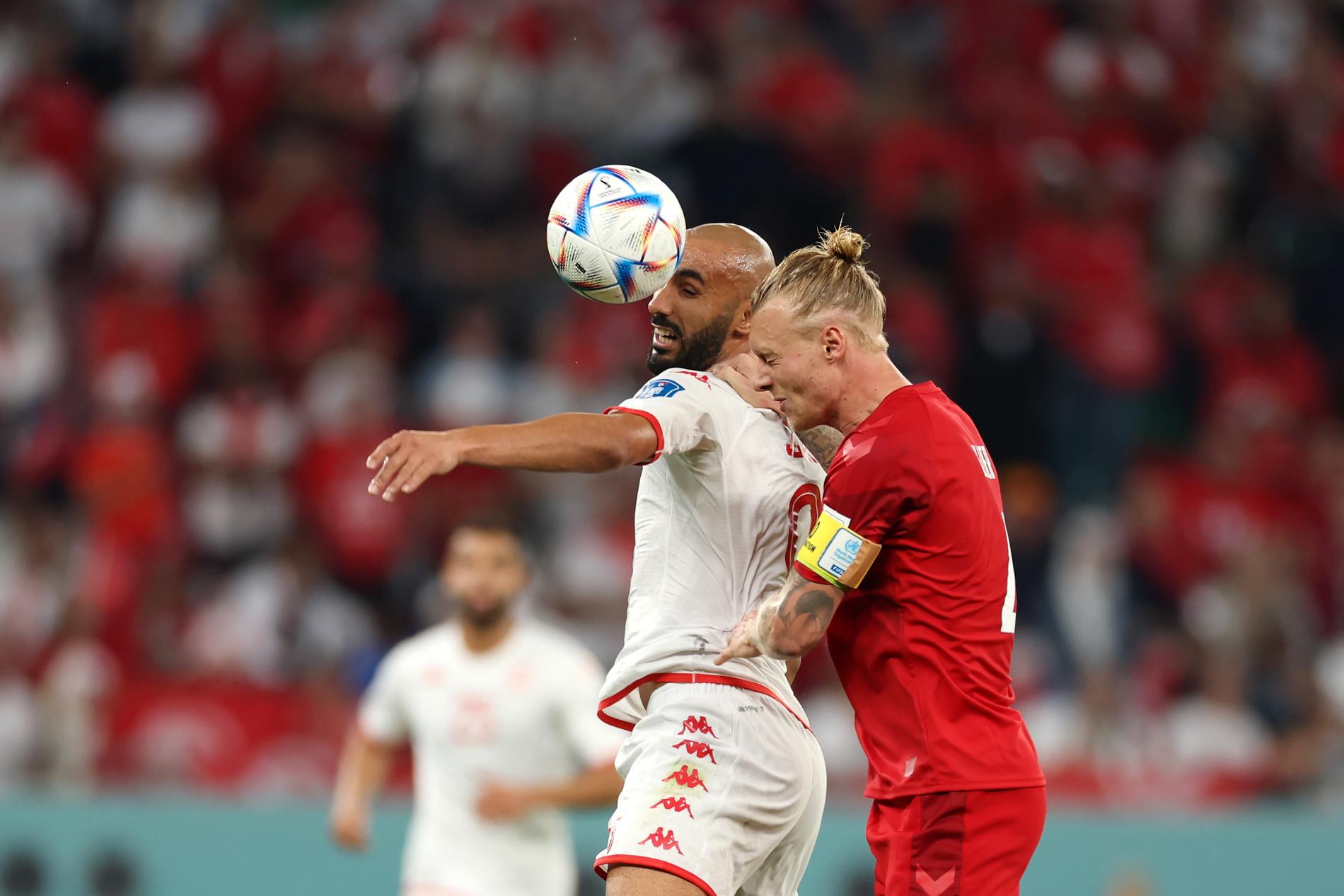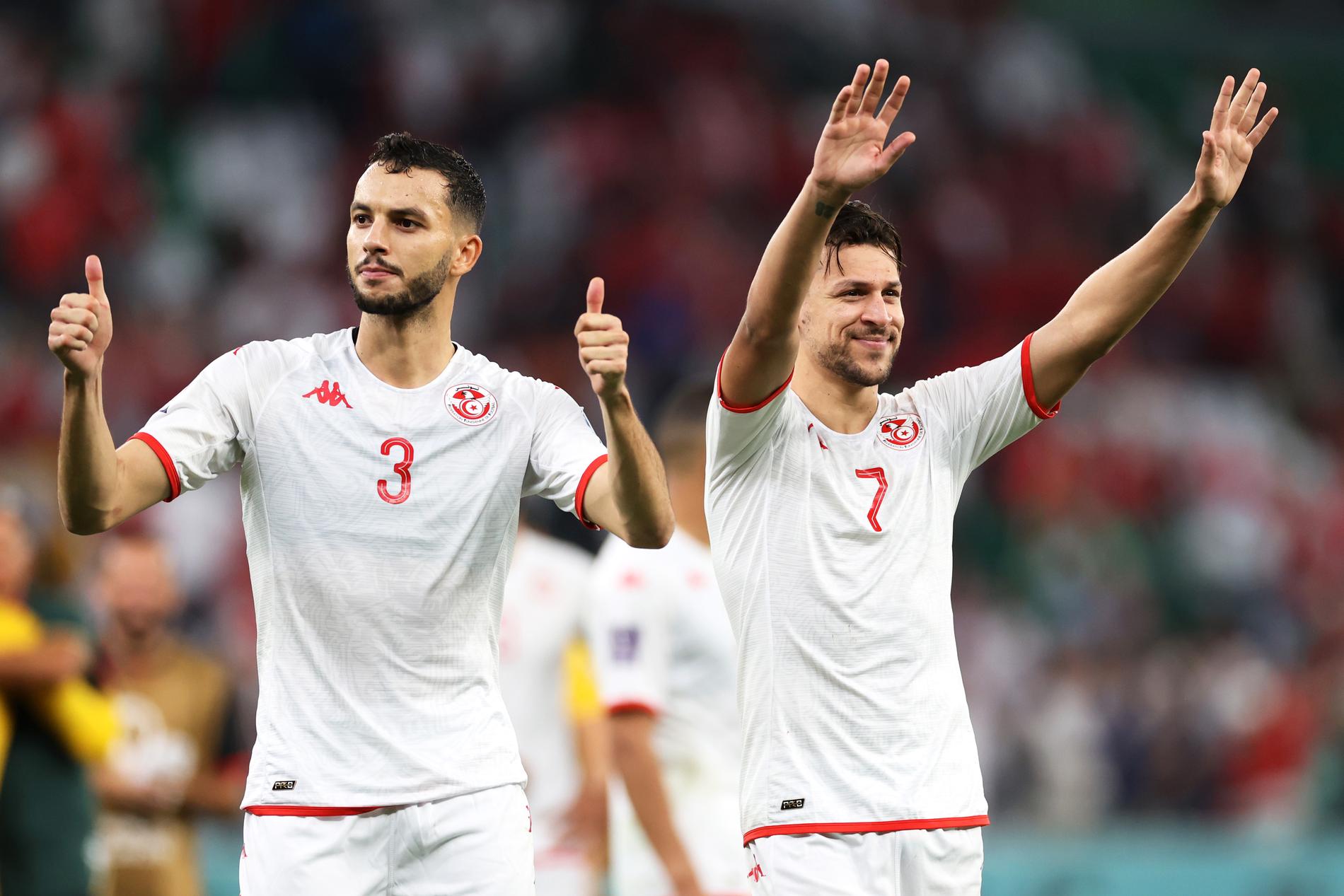All leagues need their fairytale teams.
Denmark was now.
Did they hand over the role to Tunisia today?
Today I feel healthy.
While the football world was flattened after the World Cup had scored 9 on the Richter scale in time for lunch, it was time for the World Cup to open again, and without objections. For the second time in eighteen months, we’re following a tournament marked by everything that went wrong. During the European Commission, it was about the structure, the Russian shadows, the climate issue, the epidemiological aftershocks, and it became clear what was needed:
Another story, romantic, something that can be heated up without reservations.
On foreign courts in the world: Denmark.
Can they do it again?
Christian Eriksen’s heart stopped and started again, in Kasper Hjulmand the cynical heart of Europe became perfect, Simon Kjaer was everyone’s captain, Joachim Mühl and Mikkel Damsgaard were pure talent. Everything could have been upended with the European Commission, but against Denmark it could not have been defended. And so it has been ever since, with France’s keel in the park being moved to its peak.
I remember what Hjulmand said after shocking Eriksen, which Johan Cruyff quoted:
– You can’t play football if you’re afraid.
Can they do it again? Well, I don’t know what they brought to Qatar but when they started playing it was like a team that had something to lose. Hjulmand gambled on his buddies, no matter what their form (Bundesliga sensation Jesper Lindström on the bench, goalie Dolberg right from the start) and got a wary side in return.
Tunisia? They have a national team captain (Jalil Qadri) who coached 25 teams in the 2000s, which means he’s good at this adjustment, and his Eagles haven’t been to the World Cup. They flew. A high 3-4-3 position, with strong pressure from the three up front and Issa Ledoni and Alice Skhiri in the Delaney/Hogberg defence.
It was a red-and-white rack press, but when fifty seconds later Lauduini slid on Eriksen and celebrated as if he had hit Tyson in the fourth. Liberal, brave and strong-willed, he was Tunisian, not Danish. Lidoni was the funniest, sweating testosterone like Johan Muhlig in 2002, and his team escorted him.
It was absolutely amazing, in so many ways.

They don’t have stars
Tunisia was the country that tried to turn half the world around recently, as the Arab Spring began and for a long time seemed to lead to lasting change. Now we know: This summer’s referendum gave President Kais Saied essentially unlimited power. Young people flee the country by the thousands, those who remain stand in the soccer stands (as in Morocco as in Algeria) and sing about a stolen future. The idea of democracy has been put aside. For a while it seemed as if the national team was going to be kicked out of the World Cup, because the Minister of Sports interfered in the work of the Football Association. But here they are – with a scandal-ridden Confederate president accused of corruption and a Confederate captain whose annual salary equals the weekly salary of a German Confederation captain.
They don’t have stars, they don’t have a clear goalscorer, they have an attack led by the old profile at Varnamo-Elfsborg, Issam El Gebaly.
They took on Team Pop in the World Cup, and they didn’t let their eyes down for a second.
German-Tunisian Mohamed Drager rubbed the bar with a shot ten minutes later, and Jebali pressed Kasper Schmeichel to save him with his fingertips before half-time.
And when can they no longer take it? When did Laidoni stop fumigating aggression? Then they still have their usual, smart defense. If the first few days of the World Cup have shown anything, it is that it is extremely crowded in the midfield, and teams that want to win have to be able to handle it. Play early behind the back line, or – as many try – go around the edges. Denmark became closed and sluggish and had difficulty breaking lines.
Denmark has improved
Kasper Hjulmand has spent the past few years showing just how adept he is at changing the images of matches, and now he’s trying again. Damsgaard (who had barely featured in Brentford training) came in and gave them more of the horizontal in training, with deep passing allowing Eriksen to collect the ball deeper.
Denmark improved, they found other surfaces, became more mobile and tactically flexible, and showed more ways of attacking. Christian Eriksen had to shoot from eighteen metres, Andreas Cornelius headed the post from one meter into the ensuing corner. Eriksen began to get the ball right in the final third, and at the end of the game the game looked as if it was in the script: Denmark dominated, and Tunisia fought for it. Al-Jedari did everything right, when his players could no longer take it, Tunisia fell back to a four-legged defence, and had good control.
The Hjulmand brothers’ group still commanded the sympathy of many at the World Cup, but in the match – the best of the World Cup so far – it was impossible not to feel for Tunisia.
They were the underdogs who fought for each other against a stronger opponent.
In stoppage time Jesper Lindström hit a long-range shot, with seconds remaining Tunisia escaped a VAR review, and when all the red and white melted together we had no goals whatsoever.
The Arab Spring has come and gone. The Arab Winter has started well.


